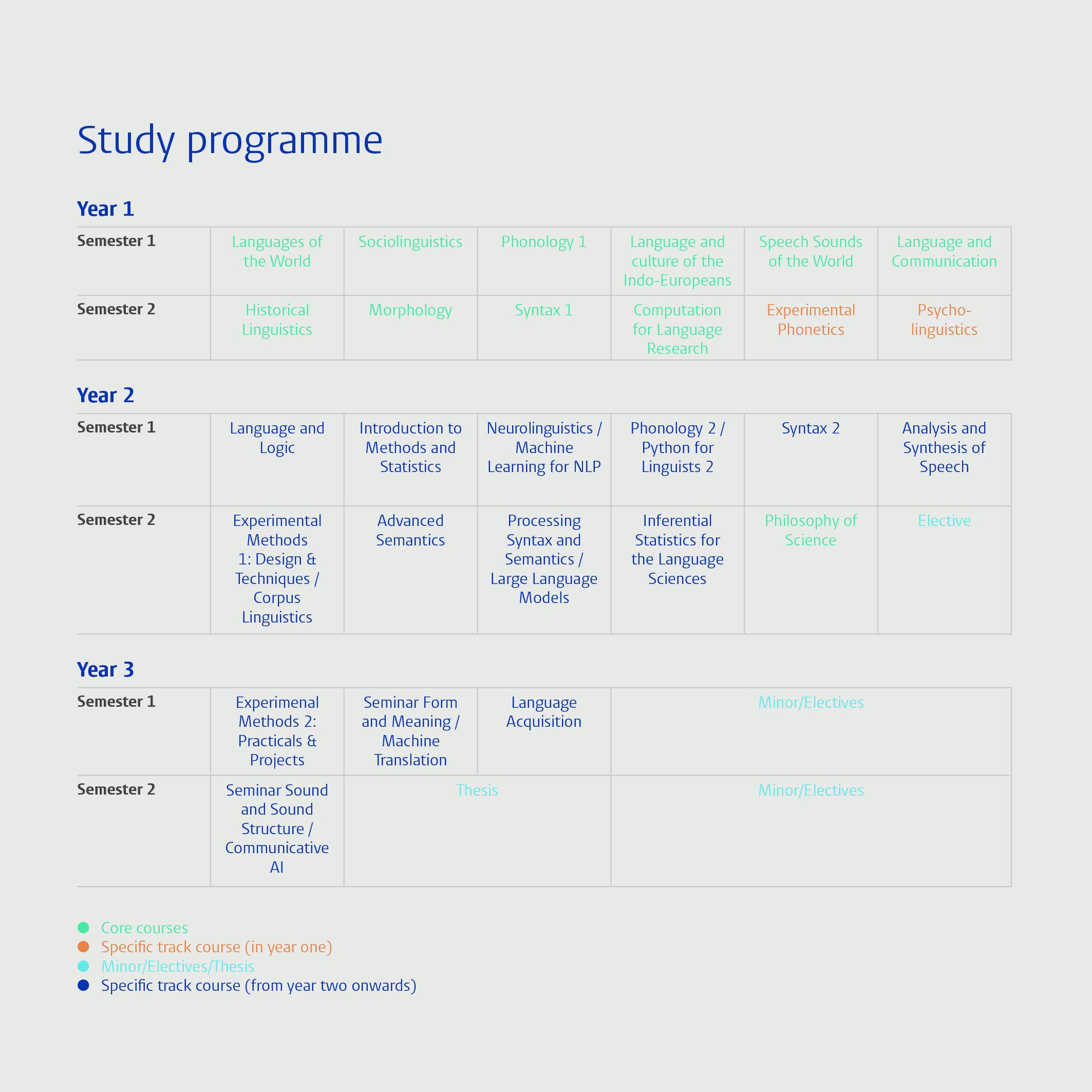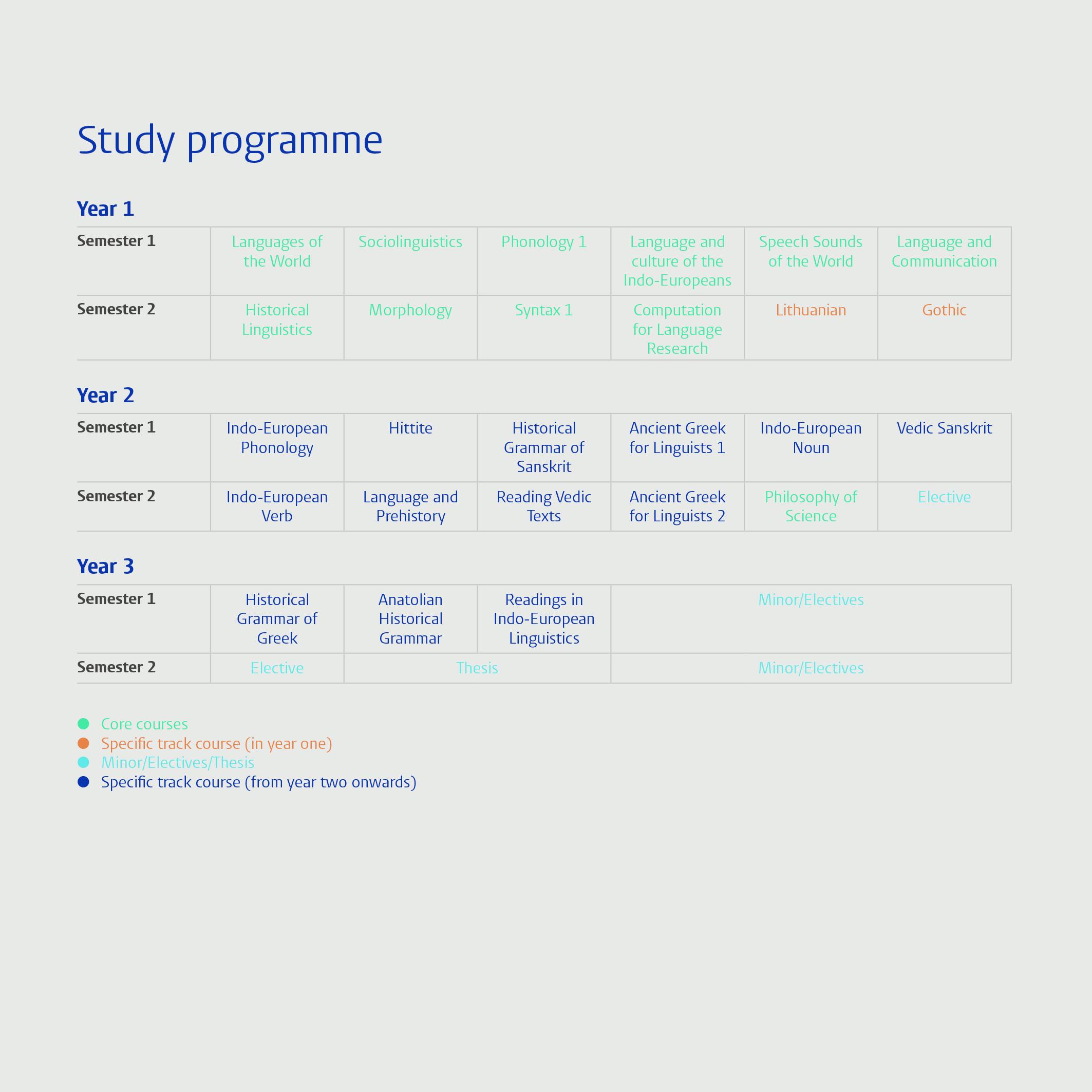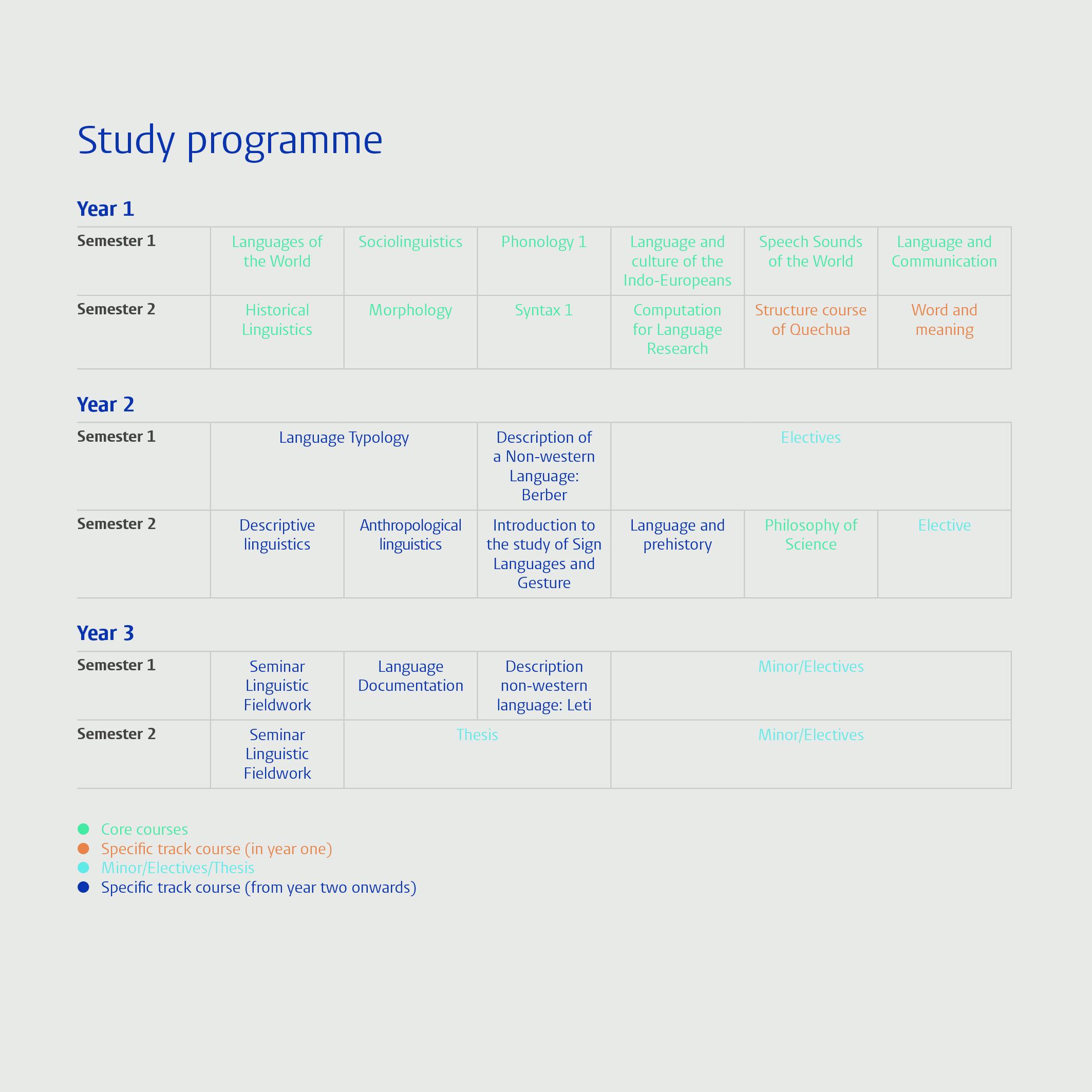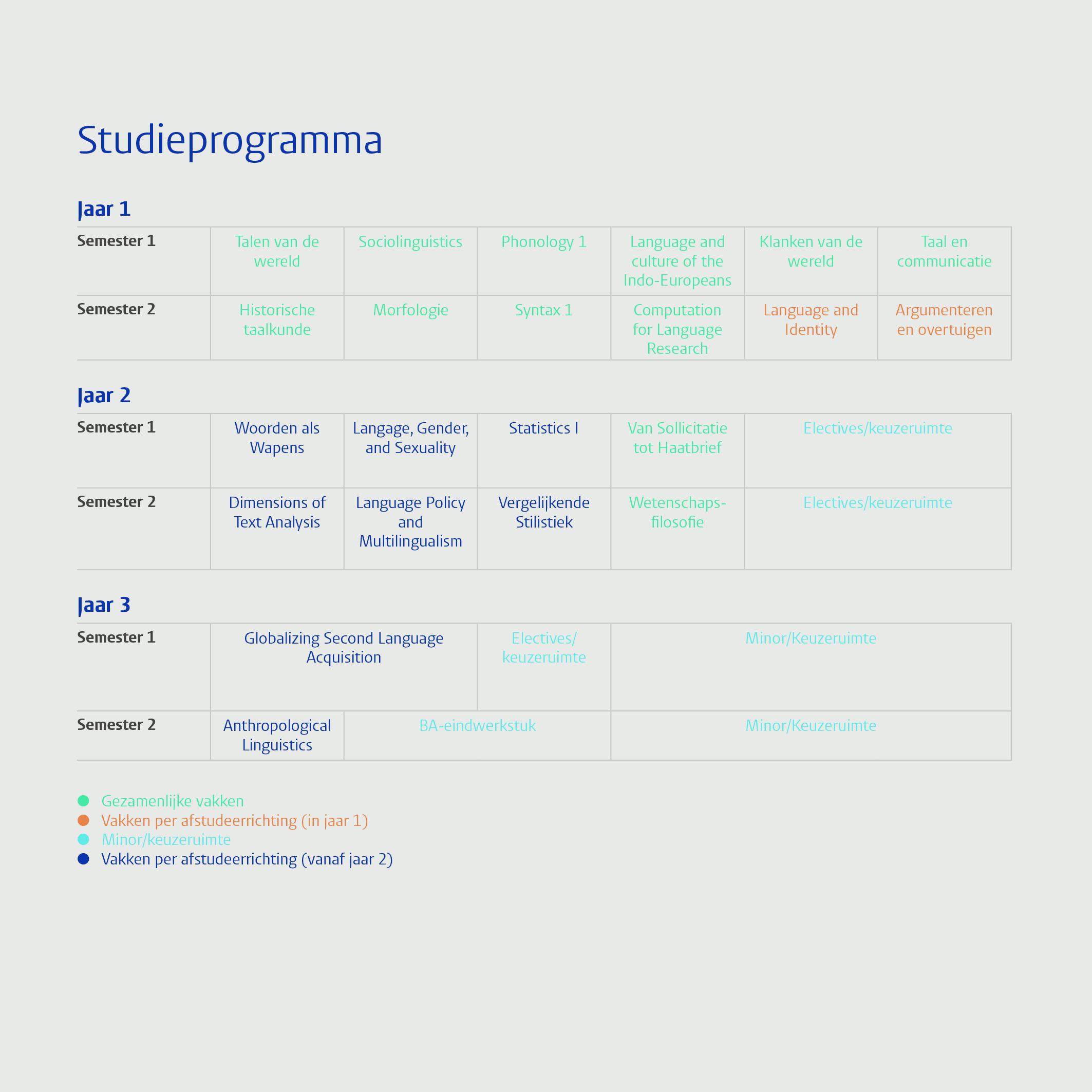Linguistics (BA)
Programme structure
In the first year, the Linguistics programme will provide you with a sound basis for specialisation, while training your academic competences. In the second year, you will choose one of our four specialisations. While focusing on this track in your second and third year, you may also choose electives outside of your specialisation if you wish.
Specialisations
All languages change over time, which is the reason that a single language may in the course of a few centuries break up into several distinct daughter languages. In this way, hundreds of languages spoken in Europe and Asia ultimately descend from a single ancestor language spoken some 5,000 years ago. In this specialisation you will learn how to reconstruct this Proto-Indo-European mother language by analysing and comparing its daughter languages, focusing on Sanskrit, Ancient Greek, Hittite, Gothic, and Lithuanian. In this way you will learn about language change and language reconstruction in general, as well as how historical linguistics adds an important layer to the study of human prehistory, complementing the fields of archaeology and palaeogenetics.
All languages have a grammatical structure, but of the roughly six thousand languages in the world, only about five hundred have been documented to a reasonable extent. Thousands of languages are still waiting for an eager linguist to discover and document their structure before they disappear into oblivion. If these languages get described, education may be developed so that people will be able to read and write their own language. Language description is also important because each newly described language gives us new insights into the variation in language. Descriptive Linguistics focuses on this important and highly relevant aspect of the linguistic field.
Language is a system, and this system is what we study in the Language and Cognition specialisation; we explore language models that try to explain how language is represented in the brain, how children develop language systems, and how brain damage can affect these systems. You will learn to develop and conduct language experiments, while working in one of our four language laboratories: the Babylab, EEG lab, Phonetics lab, or the Eye-tracking lab. In the sub-track Computational Linguistics you will learn how to code, and you will be introduced to all ins and outs of how Large Language Models (like ChatGPT) produce Artificial Intelligence. This specialisation touches on numerous research fields such as psychology, neuroscience, and computer science.
Among humans, language is used to inform, entertain or convince, but also to construct an identity. In other words, language use is functional – but how does this work? Which principles and rules do people apply when they use language in these ways? In the specialisation Language in Use / Taal in Gebruik, which is primarily taught in Dutch, you will explore questions such as: What are the effects of language use? How do we strategically use language to achieve a certain goal? What is the link between language and identity? In this track you will expand your knowledge about the persuasive power of language and how language and society mutually influence each other.
Some of the courses
Most of us are not surprised to hear a teenager using a popular slang word, but what if a fifty-year old uses the same word? Consciously and subconsciously, we use language to show that we belong to a certain group. In this course, you will explore how language functions as a social phenomenon.
Language consists of sounds (or signs). While sounds themselves do not possess a specific meaning, they do convey meaning: we acquire language through the sounds that belong to it. Phonology is about the sound systems of different languages: the units of sound and how they influence each other.
This course studies how linguistics can be used in order to reconstruct prehistory and history, and how, on the other hand, history changes language. Subjects that will be treated include: how to classify languages historically; how did lost languages leave their traces in modern languages or in toponyms; theories of language contact; pidgins and creaoles.
Of the 6000 languages in the world, only about 500 have been documented. To transcribe the words of an undocumented language you need an alphabet that can accommodate every language sound in the world. In this interesting and fun course, you learn to name, recognise, and produce foreign sounds that you did not even know existed.
What is your choice of electives?
Leiden University’s Bachelor’s in Linguistics programme offers you the freedom to tailor the programme to match your interests. From your second semester on, you can select electives that fit one of the four specialisations. During your second year, you will choose a specialisation, while you also can follow electives from another discipline or specialisation. During your third year your choices expand even further: you can choose between studying a minor, doing an internship, studying abroad, or creating a package of electives from other programmes or specialisations. The choice is yours!
Detailed programme
Below you can find an overview of the curriculum. For a detailed description of the courses, see the Prospectus. Please note that this guide applies to the current academic year, which means that the curriculum for next year may slightly differ.
-

Programme Language and Cognition. Click on the magnifier to enlarge the picture. -

Programme Comparative Indo-European Linguistics. Click on the magnifier to enlarge the picture. -

Programme Descriptive Linguistics. Click on the magnifier to enlarge the picture. -

Programme Taal in Gebruik. Click on the magnifier to enlarge the picture.

